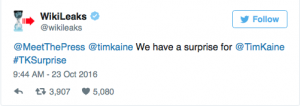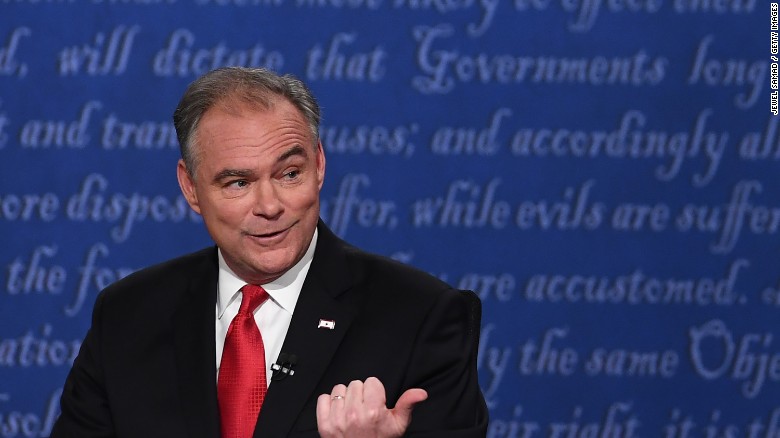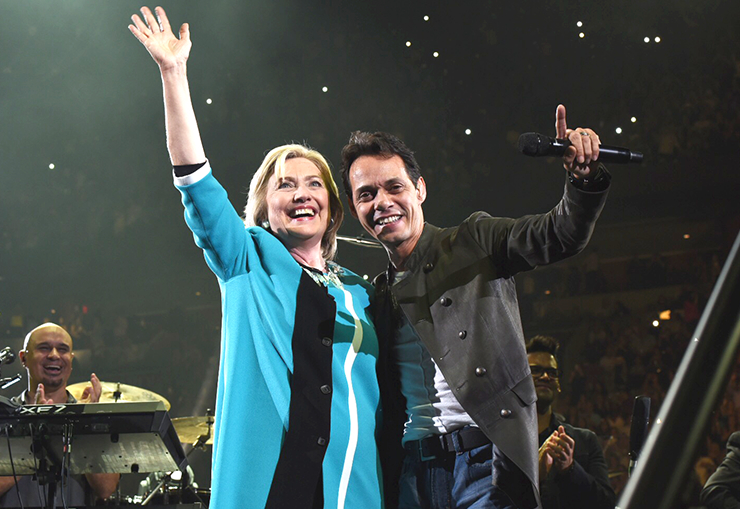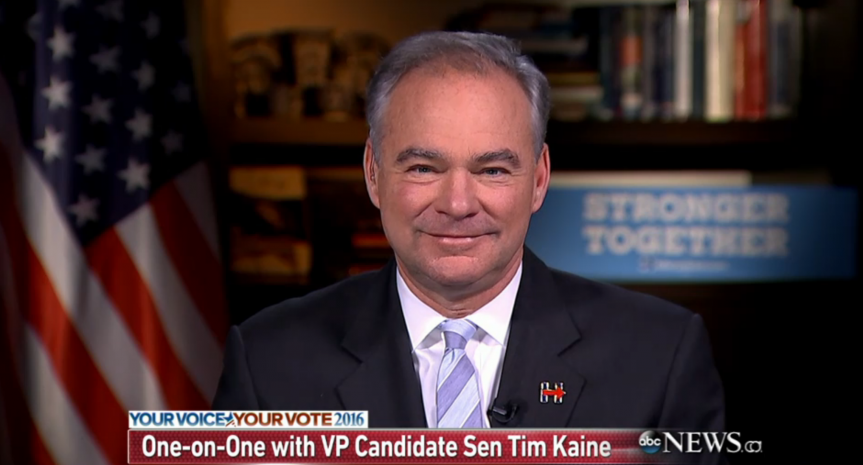In another relatively slow week in the rhetoric of Vice Presidential candidates, mainly because of well-behaved Presidential counterparts, Mike Pence and Tim Kaine have spent little time in the media spotlight. While both Vice Presidential candidates have spent time traveling and leading rallies in important states for both of their respective campaigns, little time has been spent trying to defend Donald Trump or prove Hilary Clinton’s legitimacy. This has given the two VP candidates time to address alliances within their parties, focus on issues central to their campaigns, and speak to the significance of their Presidential counterpart moving into the White House next.
In an interview with MSNBC on Tuesday, Tim Kaine came to the somewhat-comical realization that he will have a female boss for the first time in his career. The idea of having a female boss wasn’t what made him chuckle during his interview with Rachel Maddow but the fact that he was just now realizing that he could be working for his first and potentially the most powerful female “boss” in the history of the United States. “Wow, I hadn’t thought of it that way,” Kaine chuckled as he pondered the significance of what was happening within the Democratic Party. While humorous at first, Kaine’s rhetoric quickly switched to that of a more serious nature as he touched on a possible concern for many male voters from both parties—a woman’s ability to be President. Kaine is excited to run alongside Clinton as she attempts to become the first woman President, saying that his Vice Presidency would normalize the notion that “strong men should definitely support strong women.” This was a strong rhetorical move by Kaine as he fully backed the idea of himself supporting a strong woman and called other men to do the same.
As Kaine focused on the significance of his “boss”, Pence focused on personal friendships and friends of the Republican Party. As Trump makes more outlandish statements and has more allegations come out against him, prominent Republicans and party supporters have begun dropping their support of the Republican nominee. Over the last few days, Pence has repeated a phrase, a two-word call powerfully directed at the entire Republican party, “come home.” This rhetorical claim is incredibly impactful as it calls the entire Republican party to rally together over a sense of “home” or “oneness” that seems to be missing from the Republican party as of recent. As Pence talked about rallying together, he was quick to name-drop Speaker of the House Paul Ryan who has held Trump at “an arm’s length” the entire campaign, and how they have been friends for over 15 years. Not only have they been friends and associates, but Pence was quick to say that Ryan and his team will be in support of Trump and Pence and getting the Republican Party back into the White House.
Overall, it was a relatively slow week in the dialogue and rhetoric of Vice Presidential candidates but this down period nearing election day allowed for the two VP candidates to speak on the significance of their Presidential counterpart potentially taking office, party friendships, and rallying together in order to find success as November 8th quickly approaches.




 and their relationship with the president at the time. It seems that their communication once elected into office is actually more internal as they act as the preceding officer of the Senate. As their main power is the ability to cast votes responsible for tie-breaking decisions among the Senate, their main communicative function is to understand the people and support the best decisions for them while presiding over the Senate to make those tie-breaking decisions based on the communication of the people and what may be best for them.
and their relationship with the president at the time. It seems that their communication once elected into office is actually more internal as they act as the preceding officer of the Senate. As their main power is the ability to cast votes responsible for tie-breaking decisions among the Senate, their main communicative function is to understand the people and support the best decisions for them while presiding over the Senate to make those tie-breaking decisions based on the communication of the people and what may be best for them.